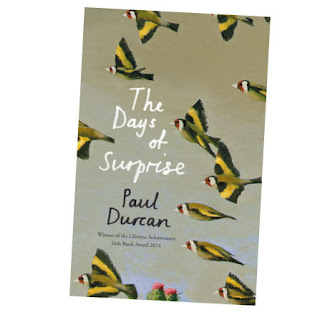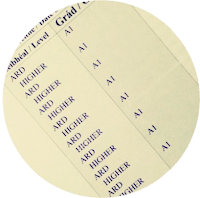As per your Twitter requests, we have prepared materials on Paul Durcan. We are not in the business of making predictions, but seeing as how there are no past questions on him, one just hopes that the question is likely to be reasonably broad and approachable. If you want any particular questions related to Durcan covered, please comment below! So there there are no past questions asked! What a wild card. Are we scared? Nah. Looking back over the last number of years, the questions have consistently taken the following form:
Plain vanilla broad poetry question, just make sure you mention those adjectives a lot!
 |
| No surprises for us this June |
Explain that reality is a number of universal themes (love, loneliness, being a parent, love for country – whatever is relevant to that particular poet.) and then you are writing about themes and imagery again.
3. Reading the poetry of Poet A’s can be both an uplifting and a disturbing experience
Talk about how the subject matter is dark/light, the poet is pessimistic/optimistic and the imagery accentuates that.
Talk about how the subject matter is mostly dark but not always and how the imagery really brings out that darkness or sparks hope.
Superimposing Durcan into some of the questions over the last number of years, we feel something like the following could be on the paper. It is by no means a prediction (although to us the formulaic view of Leaving Cert poetry questions expressed below in green obliterates the need for predictions). In any case, it help to consider these as Durcan sample questions:
Durcan uses vivid imagery to create poetry that includes both personal reflection and public commentary.
Leaving the bells and whistles aside, every single poetry question wants you to discuss two things:
1. Subject matter ( aka themes/feelings/emotions)
2. Imagery (aka language/style/symbols)
Just going on our intuition, we don’t see the word surrealism mentioned on a Leaving Cert English question. But here are some thought on such an essay title…
Paul Durcan’s work is full of satire. He exposes the way the Irish relate to religion, the state and family sharply and honestly. His poetry is charged with civic responsibility (Six Nuns die in Convent Inferno). Having said that, he appears to have an affection and deep respect for Irish history (The Girl with the Keys to Pearse’s Cottage). His poetry is full of unorthodox images that may at first appear banal, familiar and even dystopian, yet it overflows with almost palpable genuine unreserved human emotion. This is most evident in more personal poems, such as Nessa and The Difficulty that is Marriage. He is surrealist and absurdist. What does that mean?
Surrealists release the subconscious potential of the mind. It is full of juxtaposition (contradiction). For example, Durcan often juxtaposes light-hearted imagery with serious societal imagery, such as in Wife Who Smashed Television Gets Jail.
 |
| Surrealism: full of subconscious associations and conflict (why is the hairbrush bigger than the bed?) |
Absurdists believe there is no point in trying too hard to find meaning, such as the meaning of life; it is beyond the human kind. Durcan appears pessimistic and concerned about society and human nature. His striking memorable poetry breaks the rules of the more conventional elevated style we are so used to. It appears all the more warranted as he draws attention to serious emotions and contemporary issues.
See more of Paul Durcan:




Life saver! Thanks
This helped so much!
Look forward to reading your Paul Durcan notes later on today…thanks a million (I give English grinds). Anyone interested in Paul Durcan, may like to know that he is in conversation with Dermot Bolger in National Museum, Collins Barracks on 17th April at 3pm, and it's free! Here's a link. http://bit.ly/1mdKQpG As an aside, if it's booked out it's worth putting your name on the cancellation list. Dermot Bolger's interview with John Sheahan was booked out two weeks ago…but lots of people didn't arrive (which is so unfair).